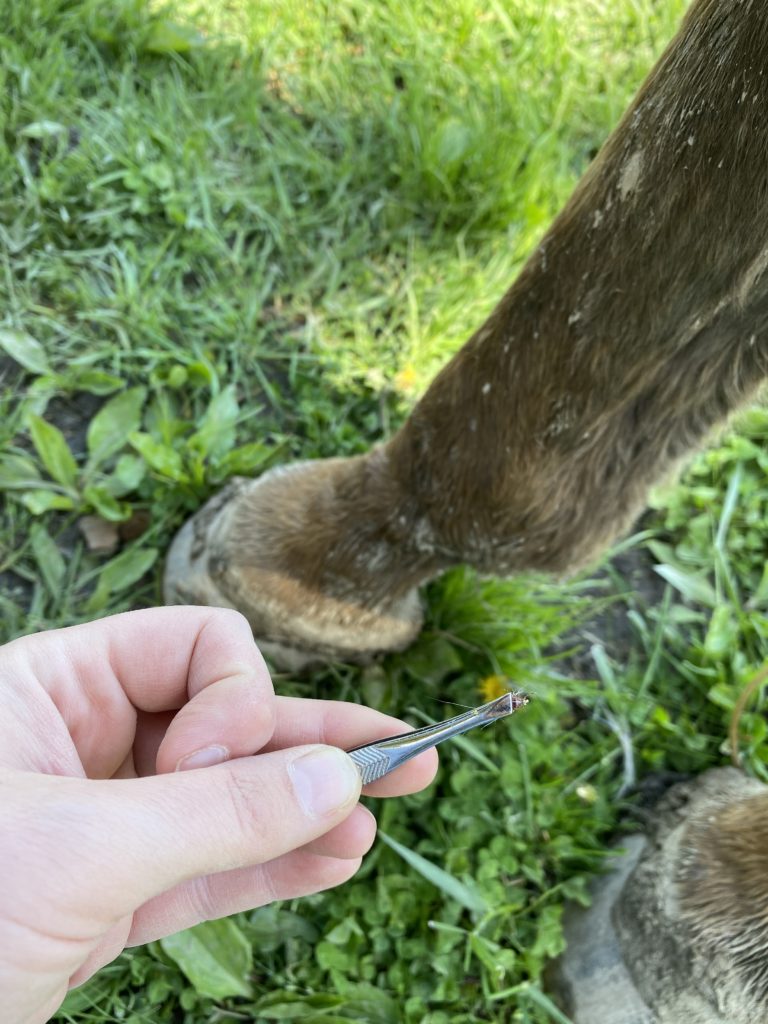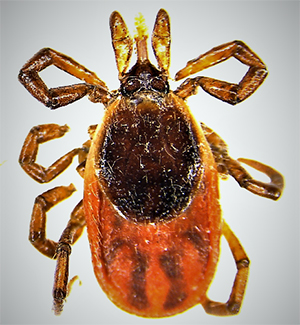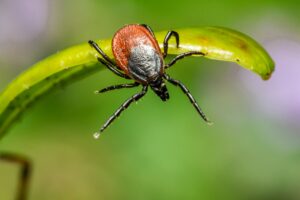If you’re a horse owner, you’ve probably dealt with ticks at some point. It may seem harmless, but ticks carry diseases that are harmful to horses. Flies and mosquitoes aren’t the only pests to be aware of!
This year, it was literally the second full week of April when I saw my first tick on any of my horses. The picture below shows a Deer tick found on my own personal horse (excuse the dirty leg).
It’s tick season!

Equine Tick Diseases
Below are three tick diseases to be aware of: Lyme disease, Anaplasmosis and Equine Piroplasmosis. There are more tick-borne diseases to be aware of, however, these came across as the most heard of.
Lyme disease
Lyme disease – yes, horses can get that too! Check out our other blog posts about Lyme disease in humans.
The most common culprits are deer ticks or black-legged ticks. The symptoms of Lyme disease in horses is similar to that in humans. However, according to Rutgers Extension the most common signs are uveitis (moon blindness), neuroborreliosis, cutaneous pseudo lymphoma. Other symptoms could happen such as: stiffness, behavioral changes, loss of appetite, etc.
Also, remember the time of year to look out for ticks is in the spring and fall. These seasons have the greatest risk of Lyme disease.
Anaplasmosis
Anaplasmosis is the top tick-borne disease in horses. Also from deer ticks, but a different bacteria than what causes Lyme disease in horses. The symptoms are far more worse as well. Symptoms include bleeding from the nose, eyes, mouth or vulva, as well as limb swelling and fever. (MSU Extension)
With this, Anaplasmosis is very serious for our equine friends. Left untreated, your horse is at risk of death.
Equine Piroplasmosis
Iowa State University Extension has investigated this tick-borne disease. Equine Piroplasmosis is transmitted by several different species of ticks. As with any disease, side effects are a hit or miss. Some horses may show signs, others might not – sometimes it might be too late.
However, researchers have found nonspecific symptoms for acute cases lead to anemia, labored breathing and lack of appetite.

Conclusion
In conclusion, there are more diseases to be aware of than meets the eye. Ticks may seem harmless, but as you can tell, they can cause some real damage to your horses. Awareness is key and prevention of tick-borne diseases is essential. Be on the lookout to see more on this subject in future blogs!





